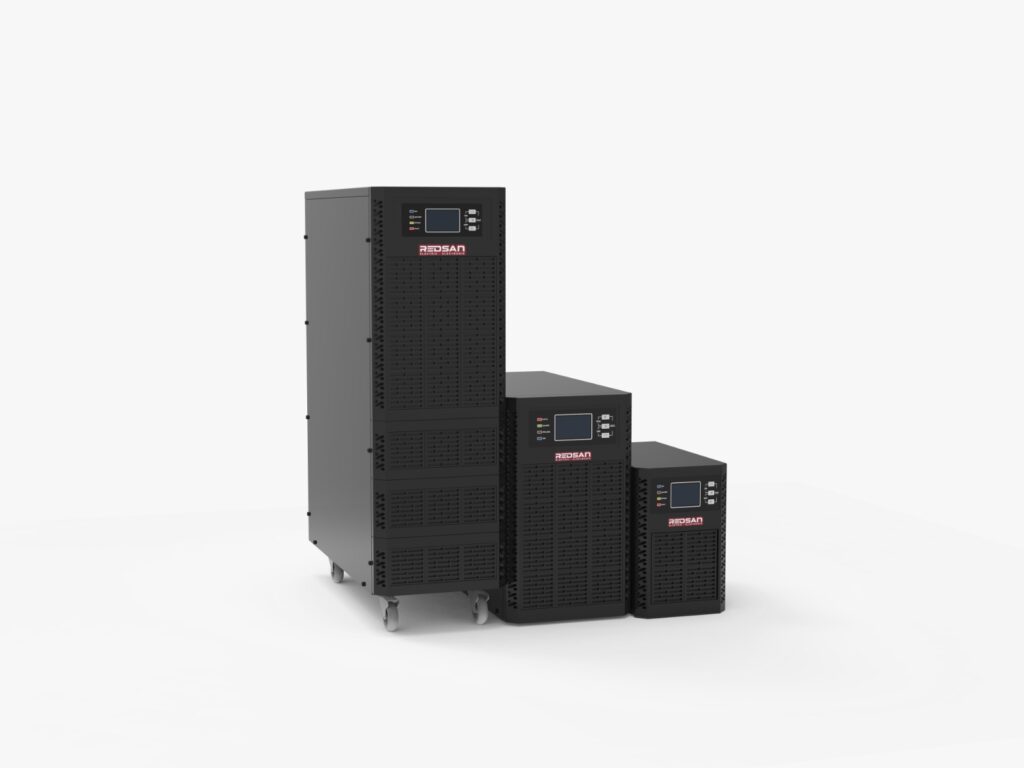Protection Against Power Failures with UPS
What is UPS and what does it do?
A UPS is a device that temporarily supplies energy to connected devices during power outages. During power outages, voltage fluctuations or other energy problems, UPS systems protect devices and keep them running. This prevents data loss, prevents system failures and guarantees business continuity.
Working Principle of UPS Systems
UPS systems store energy from the grid in batteries. In the event of a power failure, these batteries are instantly activated to power devices. There are three main types of UPS:
-
Standby UPS: This type of UPS normally delivers mains electricity directly to connected devices. In the event of a power failure, the battery power supply kicks in. It is a simple and economical option, but provides short-term power protection.
-
Line-Interactive UPS: Includes an automatic voltage regulator (AVR) to regulate voltage fluctuations in mains electricity. This provides more stable power and allows devices to continue operating during mild power outages.
-
Online UPS: This type offers the highest level of protection by continuously passing energy from the power grid through the battery. It provides clean and uninterrupted power independent of the grid, making it ideal for sensitive equipment.
Advantages of UPS Systems
-
Providing Uninterrupted Energy: Keeps systems running during power outages, preventing business interruptions and preventing data loss.
-
Voltage Surge Prevention: Provides protection against voltage fluctuations and power spikes. This extends the life of devices and prevents malfunctions.
-
Data Protection: Helps protect data critical to computers and data centers. Ensures safe shutdown of systems during a power failure.
-
System Security: The UPS ensures safe shutdown of devices in the event of sudden power failures, thus preventing hardware damage.


What to Consider When Choosing a UPS?
-
Capacity: The capacity of the UPS must match the total power consumption of the connected devices. The capacity ensures safe operation of the devices.
-
Output Duration: The battery capacity of the UPS determines how long it can operate the devices during a power failure. A suitable model should be selected according to the time needed.
-
High Efficiency: UPS systems with high energy efficiency lower energy costs and reduce environmental impact.
-
Additional Features: Additional features such as LCD display, remote monitoring, alarm systems, etc. increase the functionality of the UPS and provide ease of use.
-
Size and Layout: Rack mount, vertical or horizontal layout options are important for space saving and ease of installation.
UPS systems provide reliable protection against power outages and voltage fluctuations. Providing energy security for both individual users and businesses, these systems guarantee business continuity and data security. By choosing a UPS that suits your needs, you can protect your devices and be prepared for possible outages.

